What We Do

OPD
The OPD at Shreekrishna Hospital operates 24 hours a day, ensuring that patients can receive medical attention at any time. Patients are required to call the hospital before visiting to schedule an appointment. This helps manage patient flow and ensures that doctors can provide timely care.

Waiting Area
Comfortable seating arrangements help in reducing the stress and fatigue associated with waiting. The hospital maintains a high standard of cleanliness and hygiene in the waiting areas. Regular cleaning schedules ensure that the space is sanitized and safe for all visitors.

Playful Area
Safety is a priority, and the playful area is regularly cleaned and maintained to ensure a hygienic environment. The area is also designed to be secure, with hospital staff monitoring to ensure the safety of all children.

Attentive Staff
The hospital employs highly trained and experienced medical professionals, including doctors, nurses, and support staff. They are well-versed in providing medical care with compassion and empathy. Staff members are trained to focus on the needs and well-being of patients, ensuring that each individual receives personalized attention and care.

IPD
Shreekrishna Hospital offers a comprehensive range of services to ensure high-quality patient care. Patients can choose from private rooms, semi-private rooms, and general wards based on their preferences and needs. The hospital provides 24/7 medical care with continuous nursing support and on-call doctors to address any medical concerns promptly.

Neonatal & Pediatric Surgery
Neonatal and pediatric surgery at Shree Krishna Hospital is a specialized field dedicated to providing surgical care for infants, children, and adolescents. Our expert team of pediatric surgeons, anesthesiologists, nurses, and support staff is committed to delivering the highest level of surgical care tailored to the unique needs of our youngest patients.

NICU
Equipped with advanced medical equipment including incubators, ventilators, and monitors, the NICU ensures that newborns receive the necessary support for their delicate health needs. Staffed by a team of highly trained neonatologists, NICU nurses, and support staff, the unit offers round-the-clock care and monitoring.

Ventilator
A ventilator is a medical device that helps patients breathe when they are unable to do so on their own. It delivers oxygen-rich air into the lungs and removes carbon dioxide, maintaining proper levels of oxygen in the blood. Ventilators come in various forms, including invasive and non-invasive types.

PICU critical care
PICU critical care involves the management and treatment of life-threatening conditions in pediatric patients. The PICU is equipped to handle a wide range of medical emergencies, including:
- Respiratory Distress
- Cardiac Emergencies
- Trauma

CPAP Machine
CPAP, or Continuous Positive Airway Pressure, is a therapy commonly used to treat breathing problems, particularly in infants and young children. It involves the use of a CPAP machine, which delivers a continuous flow of air through a mask or nasal prongs, helping to keep the airway open and maintain proper breathing.
CPAP therapy for various reasons, including:
- Premature Birth
- Obstructive Sleep Apnea (OSA)
- Respiratory Distress Syndrome (RDS)

Ultrasonic Nebulization
Ultrasonic nebulization, a medical therapy, employs high-frequency sound waves to transform liquid medication into a fine mist. This mist is inhaled into the lungs, making it an efficient and non-invasive method to administer medication, particularly beneficial for respiratory conditions such as asthma or other breathing issues.

Phototherapy Unit
A Phototherapy Unit is a medical apparatus that utilizes special lights to manage conditions like jaundice in newborns. These lights aid in breaking down excess bilirubin in the infant's body, a substance responsible for the yellowing of the skin and eyes. By subjecting the baby to these specific lights, the unit assists in decreasing jaundice and encouraging a healthier state in infants.

Incubator Care
Incubator care entails placing newborns, particularly premature or unwell infants, in a controlled and warm environment called an incubator. This enclosed apparatus offers a secure and regulated space, maintaining a consistent temperature to aid the baby's growth and development. It assists in shielding the baby from external elements.

Pulse Oximeter
A Pulse Oximeter is a compact tool that gauges the oxygen levels in your blood by attaching to a finger or another body part. It also provides details about your heart rate. This non-invasive device is frequently utilized in healthcare settings to promptly evaluate an individual's oxygen saturation levels, aiding medical professionals in monitoring respiratory function and making informed decisions regarding patient care.

Vaccination Center
A Vaccination Center is a specified location where vaccines are given to individuals to shield them against different diseases. These centers are essential for public health, providing a centralized and structured site for individuals to get immunized. Vaccination Centers are pivotal in halting the transmission of contagious diseases, guaranteeing that communities are protected.

Premature Babies
Premature babies, or preemies, are infants born before completing the full 37 weeks of gestation. Typically, a full-term pregnancy lasts about 40 weeks. Premature birth can result in babies being born with underdeveloped organs and systems, requiring special care and medical attention. Preemies may face health challenges, and they often need support in areas such as breathing, feeding, and maintaining body temperature.

Child disease diagnosis
Childhood disease diagnosis refers to the process of identifying and determining the nature of a health condition affecting a child. This involves a series of medical assessments, including physical examinations, medical history reviews, and often diagnostic tests such as blood tests, imaging studies, or other specialized evaluations. The goal is to accurately identify the specific disease or health issue a child is facing, allowing healthcare professionals to develop an appropriate treatment plan. Early and accurate diagnosis is crucial for effective management and care of childhood illnesses.

Extreme Premature Babies
Extreme premature babies are infants born significantly before completing a full-term pregnancy, usually before 28 weeks of gestation. These babies, often referred to as "extremely preterm" or "extreme preemies," face a higher risk of health complications due to their underdeveloped organs and systems. Extreme prematurity requires specialized medical care in a neonatal intensive care unit (NICU) to support the baby's survival and promote healthy development. The medical challenges associated with extreme prematurity include respiratory distress.

CHILD'S Cardiac Diseases
Childhood cardiac diseases refer to various heart-related conditions or abnormalities that affect children. These conditions can be present at birth (congenital) or may develop during childhood. Some common childhood cardiac diseases include congenital heart defects, arrhythmias (irregular heartbeats), cardiomyopathies (diseases affecting the heart muscle), and acquired heart conditions.

Total Parental Nutrition (TPN)
TPN is a way to provide complete and essential nutrition to individuals who are unable to eat or absorb nutrients through the digestive system. It involves delivering a balanced mixture of nutrients directly into the bloodstream through a vein. This specialized intravenous solution typically contains a combination of carbohydrates, proteins, fats, vitamins, and minerals, meeting the individual's nutritional needs.

Exchange Blood Transfusion
Exchange blood transfusion is a medical procedure in which a patient's blood is gradually replaced with donor blood. This process involves removing small amounts of the patient's blood at a time and replacing it with an equal volume of donor blood. The goal is to improve the quality and composition of the blood, often to treat conditions such as severe jaundice in newborns, certain types of anemia, or to remove abnormal blood components.

Nutrition Advice
Proper nutrition is essential for the healthy growth and development of children. At Shree Krishna Hospital, we understand the importance of nutrition in pediatric care and offer expert advice to help parents ensure their children receive the nutrients they need for optimal health.
Importance of Nutrition for Children
- Physical Growth
- Cognitive Development
- Immune Function

Physiotherapy
Physiotherapy is a healthcare profession that focuses on helping individuals recover from injuries, manage chronic conditions, and improve physical function through movement and exercise. In pediatric physiotherapy, the emphasis is on addressing the unique needs of children to support their growth and development.

Blood Laboratory
A blood laboratory, also known as a clinical laboratory or hematology laboratory, is a facility where various tests and analyses are performed on blood samples to assess a patient's health status, diagnose medical conditions, and monitor treatment effectiveness. These tests can provide valuable information about a patient's blood cells, organs, and overall health.